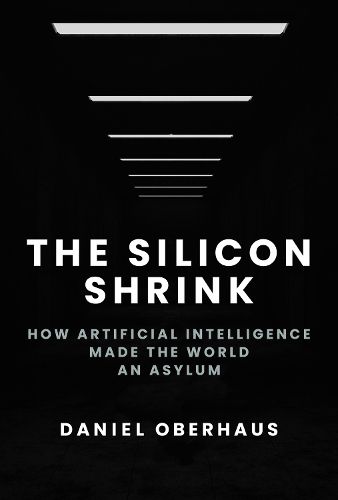Readings Newsletter
Become a Readings Member to make your shopping experience even easier.
Sign in or sign up for free!
You’re not far away from qualifying for FREE standard shipping within Australia
You’ve qualified for FREE standard shipping within Australia
The cart is loading…






Why the race to apply AI in psychiatry is so dangerous, and how to understand the new tech-driven psychiatric paradigm.
Why the race to apply AI in psychiatry is so dangerous, and how to understand the new tech-driven psychiatric paradigm.
AI psychiatrists promise to detect mental disorders with superhuman accuracy, provide affordable therapy for those who can't afford or can't access treatment, and even invent new psychiatric drugs. But the hype obscures an unnerving reality. In The Silicon Shrink, Daniel Oberhaus tells the inside story of how the quest to use AI in psychiatry has created the conditions to turn the world into an asylum. Most of these systems, he writes, have vanishingly little evidence that they improve patient outcomes, but the risks they pose have less to do with technological shortcomings than the application of deeply flawed psychiatric models of mental disorder at unprecedented scale.
Oberhaus became interested in the subject of mental health after tragically losing his sister to suicide. In the book, he argues that these new, ostensibly therapeutic technologies already pose significant risks to vulnerable people, and they won't stop there. These new breeds of AI systems are creating a psychiatric surveillance economy in which the emotions, behavior, and cognition of everyday people are subtly manipulated by psychologically savvy algorithms that have escaped the clinic. Oberhaus also introduces readers to the concept of "swipe psychology," which is quickly establishing itself as the dominant mode of diagnosing and treating mental disorders.
It is not too late to change course, but to do so means we must reckon with the nature of mental illness, the limits of technology, and what it means to be human.
$9.00 standard shipping within Australia
FREE standard shipping within Australia for orders over $100.00
Express & International shipping calculated at checkout
Why the race to apply AI in psychiatry is so dangerous, and how to understand the new tech-driven psychiatric paradigm.
Why the race to apply AI in psychiatry is so dangerous, and how to understand the new tech-driven psychiatric paradigm.
AI psychiatrists promise to detect mental disorders with superhuman accuracy, provide affordable therapy for those who can't afford or can't access treatment, and even invent new psychiatric drugs. But the hype obscures an unnerving reality. In The Silicon Shrink, Daniel Oberhaus tells the inside story of how the quest to use AI in psychiatry has created the conditions to turn the world into an asylum. Most of these systems, he writes, have vanishingly little evidence that they improve patient outcomes, but the risks they pose have less to do with technological shortcomings than the application of deeply flawed psychiatric models of mental disorder at unprecedented scale.
Oberhaus became interested in the subject of mental health after tragically losing his sister to suicide. In the book, he argues that these new, ostensibly therapeutic technologies already pose significant risks to vulnerable people, and they won't stop there. These new breeds of AI systems are creating a psychiatric surveillance economy in which the emotions, behavior, and cognition of everyday people are subtly manipulated by psychologically savvy algorithms that have escaped the clinic. Oberhaus also introduces readers to the concept of "swipe psychology," which is quickly establishing itself as the dominant mode of diagnosing and treating mental disorders.
It is not too late to change course, but to do so means we must reckon with the nature of mental illness, the limits of technology, and what it means to be human.